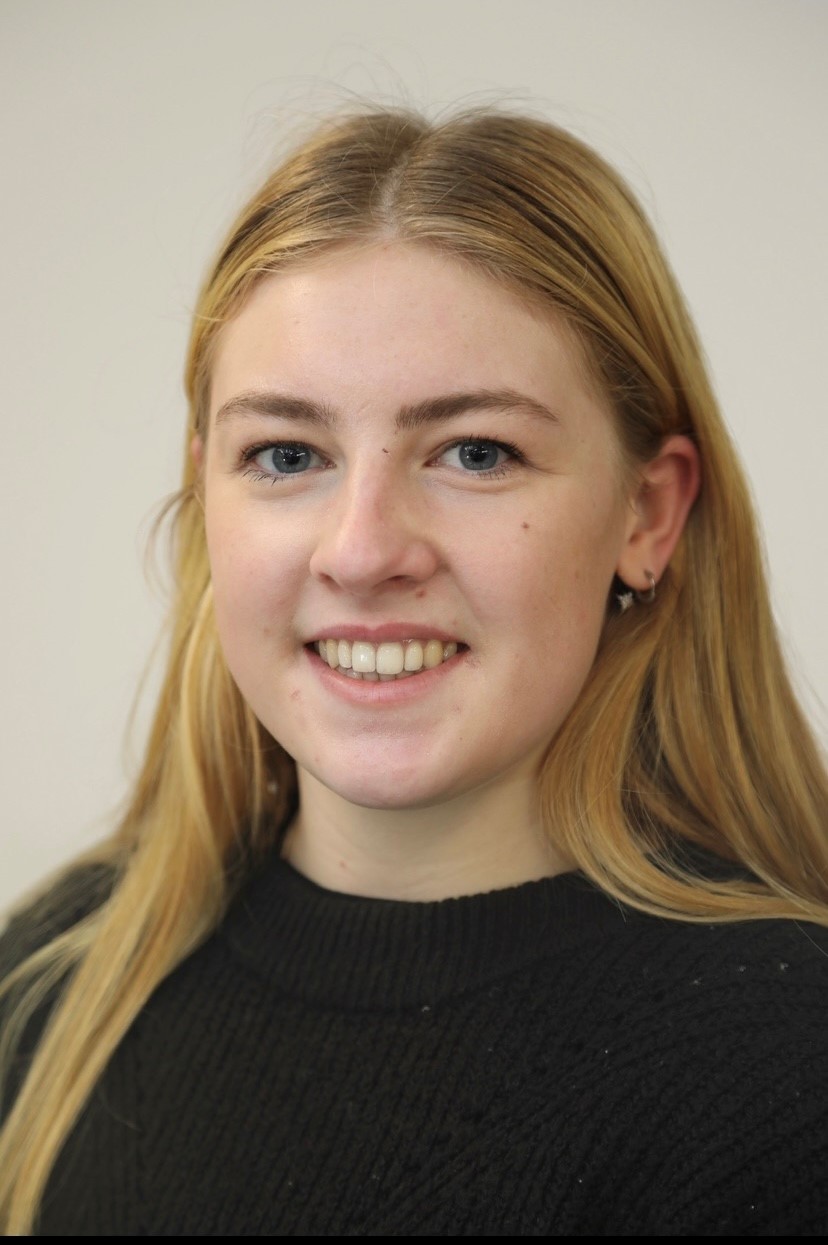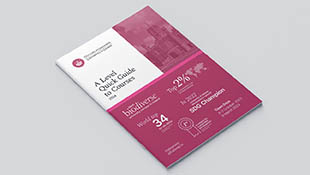-
Courses

Courses
Choosing a course is one of the most important decisions you'll ever make! View our courses and see what our students and lecturers have to say about the courses you are interested in at the links below.
-
University Life

University Life
Each year more than 4,000 choose University of Galway as their University of choice. Find out what life at University of Galway is all about here.
-
About University of Galway

About University of Galway
Since 1845, University of Galway has been sharing the highest quality teaching and research with Ireland and the world. Find out what makes our University so special – from our distinguished history to the latest news and campus developments.
-
Colleges & Schools

Colleges & Schools
University of Galway has earned international recognition as a research-led university with a commitment to top quality teaching across a range of key areas of expertise.
-
Research & Innovation

Research & Innovation
University of Galway’s vibrant research community take on some of the most pressing challenges of our times.
-
Business & Industry

Guiding Breakthrough Research at University of Galway
We explore and facilitate commercial opportunities for the research community at University of Galway, as well as facilitating industry partnership.
-
Alumni & Friends

Alumni & Friends
There are 128,000 University of Galway alumni worldwide. Stay connected to your alumni community! Join our social networks and update your details online.
-
Community Engagement

Community Engagement
At University of Galway, we believe that the best learning takes place when you apply what you learn in a real world context. That's why many of our courses include work placements or community projects.
Bachelor of Science (Biomedical Science)
Course Overview
What is Biomedical Science?
Biomedical Science is the study of Life Science subjects related to human health and disease. Students will learn about the structure and function of the human body from the level of organs and tissues to the molecular level, as well as how drugs are used to treat disease. You will major in one of the following biomedical science subjects: Anatomy, Biochemistry, Pharmacology or Physiology.
Why should I study Biomedical Science?
This degree is dedicated to producing top quality graduates who have achieved academic excellence. The programme promotes small-group learning throughout the course. This informal interaction with academic staff allows students to get to know their lecturers and helps promote a range of skills such as Communication, Leadership, Teamwork and Creativity. This course also offers the unique opportunity to undertake a research project in both third and fourth year.
International Links
Students have the opportunity to apply to spend one semester of third year in the United States (e.g. University of California) or in Asia (e.g. Hong Kong University of Science and Technology).
Applications and Selections
Who Teaches this Course
School of Natural Science and the School of Mathematical and Statistical Sciences. Lecturers include:
Requirements and Assessment
Key Facts
Entry Requirements
Minimum Grade H5 in two subjects and passes in four other subjects at O6/H7 level in the Leaving Certificate, including Irish, English, Mathematics, a laboratory science subject (i.e. Chemistry, Physics, Biology, Physics with Chemistry (joint) or Agricultural Science) and any two other subjects recognised for entry purposes.
Additional Requirements
Recognition of Prior Learning (RPL)
Duration
4 years
Next start date
September 2024
A Level Grades (2023)
universityofgalway.ie/alevels
Average intake
45
QQI/FET FETAC Entry Routes
Closing Date
NFQ level
Mode of study
ECTS weighting
Award
CAO
GY303
Course code
Course Outline
See course outline for Biomedical Science here.
YEAR ONE
- Biology
- Chemistry
- Physics
- Biomedical Science (including science communication, essays, debates)
YEAR TWO
Three pathways from:
- Anatomy, Biochemistry, Pharmacology or Physiology (two subjects for both semesters and one other for Semester I only)
- Biomedical Science (including seminars and community knowledge initiative projects)
YEAR THREE
One major pathway from:
- Anatomy, Biochemistry, Pharmacology or Physiology (including mini research project)
- Biostatistics
- Biomedical Science (Research Methods and Applications)
- Electives - options include Developmental Biology and Bioinformatics
YEAR FOUR
Continue with one major pathway from:
- Anatomy, Biochemistry, Pharmacology or Physiology
- Major research project
Curriculum Information
Curriculum information relates to the current academic year (in most cases).Course and module offerings and details may be subject to change.
Glossary of Terms
- Credits
- You must earn a defined number of credits (aka ECTS) to complete each year of your course. You do this by taking all of its required modules as well as the correct number of optional modules to obtain that year's total number of credits.
- Module
- An examinable portion of a subject or course, for which you attend lectures and/or tutorials and carry out assignments. E.g. Algebra and Calculus could be modules within the subject Mathematics. Each module has a unique module code eg. MA140.
- Subject
- Some courses allow you to choose subjects, where related modules are grouped together. Subjects have their own required number of credits, so you must take all that subject's required modules and may also need to obtain the remainder of the subject's total credits by choosing from its available optional modules.
- Optional
- A module you may choose to study.
- Required
- A module that you must study if you choose this course (or subject).
- Required Core Subject
- A subject you must study because it's integral to that course.
- Semester
- Most courses have 2 semesters (aka terms) per year, so a three-year course will have six semesters in total. For clarity, this page will refer to the first semester of year 2 as 'Semester 3'.
Year 1 (60 Credits)
Required BO101: Biology - 15 Credits - Semester 1Required CH120: Chemistry: Molecular Science - 15 Credits - Semester 1
Required BM110: Introduction to Science Communication - 5 Credits - Semester 1
Required PH101: Physics - 15 Credits - Semester 1
Required BM112: Biomedical Debates - 5 Credits - Semester 1
Required BM111: Introduction to Biomedical Research - 5 Credits - Semester 2
Year 2 (60 Credits)
Optional AN2101: Cells and Tissues - 10 Credits - Semester 3Optional PM208: Fundamental Concepts in Pharmacology - 5 Credits - Semester 3
Optional PM209: Applied Concepts in Pharmacology - 5 Credits - Semester 3
Optional SI2101: Introductory Physiology - 10 Credits - Semester 3
Required BI208: Protein Structure and Function - 5 Credits - Semester 3
Required BO201: Molecular and Cellular Biology - 5 Credits - Semester 3
Optional SI207: Nerve and Muscle - 5 Credits - Semester 3
Optional SI206: Introduction to Physiology and Gastrointestinal - 5 Credits - Semester 3
Optional AN223: Embryology & Development - 5 Credits - Semester 4
Optional PM210: Molecular Pharmacology and Signalling - 10 Credits - Semester 4
Optional BI206: Gene Technologies and Molecular Medicine - 5 Credits - Semester 4
Optional BI207: Metabolism and Cell Signalling - 5 Credits - Semester 4
Optional AN226: Systems Histology - 5 Credits - Semester 4
Optional SI2102: Systems Physiology - 10 Credits - Semester 4
Required BM202: Biomedical Seminars - 5 Credits - Semester 4
Required BM204: Community Knowledge Initiative programme - 5 Credits - Semester 4
Optional SI212: Respiratory Physiology - 5 Credits - Semester 4
Optional SI208: Cardiovascular Physiology - 5 Credits - Semester 4
Further Education
A high proportion of graduates pursue higher degrees (MSc or PhD) at universities at home and abroad, in many diverse areas including molecular and cell biology, cancer, genetics, regenerative medicine and neuroscience. A proportion of graduates go on to study for professional degrees in the Health Sciences (e.g. Medicine, Pharmacy, Physiotherapy).
Why Choose This Course?
Career Opportunities
Graduates from this program will find employment in the pharmaceutical (e.g. Allergan), diagnostics (e.g. Abbott) and medical devices (e.g. Medtronic, Boston Scientific) industries. Other graduates will go on to careers in research, academia and many areas of health sciences and health care.
Focus on research skills and communication
There is an emphasis in the BSc Biomedical Science course on developing research and communication skills. Students will have many opportunities to work in small groups to develop teamworking skills. Students will develop excellent critical thinking skills through project work and will be encouraged to be questioning scientists who will contribute to the ever-expanding knowledge about human biology which underpins our understanding of human health and disease.
Who’s Suited to This Course
Learning Outcomes
Transferable Skills Employers Value
Work Placement
Study Abroad
Related Student Organisations
Course Fees
Fees: EU
Fees: Tuition
Fees: Student Contribution
Fees: Student levy
Fees: Non EU
EU Fees are comprised of Tuition + Student Contribution Charge + Student Levy** €140. **Payable by all students and is not covered by SUSI. Further detail here.
Find out More
To find out more on our open day please click here: Biomedical Science
What Our Students Say
Rebecca Lane | BSc in Biomedical Science
One of the most enjoyable aspects of my course was my final year research project, which allowed me to put the skills I learned throughout the course to use in a real research context. The projects pushed us all out of our comfort zones, but the supervisors and mentors were very supportive, and I feel much more confident in my research ability now having done it.Throughout the BSc in Biomedical Science, there is a very strong focus on developing research skills, particularly in literature review and science communication. Further to this, regular practicals familiarized us with a diversity of laboratory techniques. This course also struck a nice balance between independent and group work, demanding both the self-motivation and interpersonal skills required of a researcher. As someone who is very passionate about a career in research, I feel that this course was the perfect fit, and has prepared me very well to hit the ground running when I start my PhD.

Caoimhe Maguire | BSc in Biomedical Science
This course is great because it’s a small close-knit class – it’s easy to make friends. I learned that Biomedical Science is varied, fascinating and constantly changing with new discoveries, and it is a great degree for me to now pursue a career in the sciences of health and disease.

Aoife O’Connell | BSc in Biomedical Science
A unique aspect of this course is the initial focus on developing a variety of practical skills. Right from the beginning you learn how to design and compete experiments, communicate findings with the public and discuss scientific topics. In later years there are a variety of seminars, research projects and literature reviews - the most notable being the 12-week independent research project in fourth year. There is a focus from the beginning on group work, which helps develop interpersonal and teamwork skills but also offers the opportunity to get to know more people on your course. As you progress more independent work is introduced, requiring self-motivation but offering the freedom to fully show your potential. As I plan to pursue a career in research this course was the perfect fit for me, it helped me develop skills which will aid me as I begin my career.








.jpg)
.jpg)











